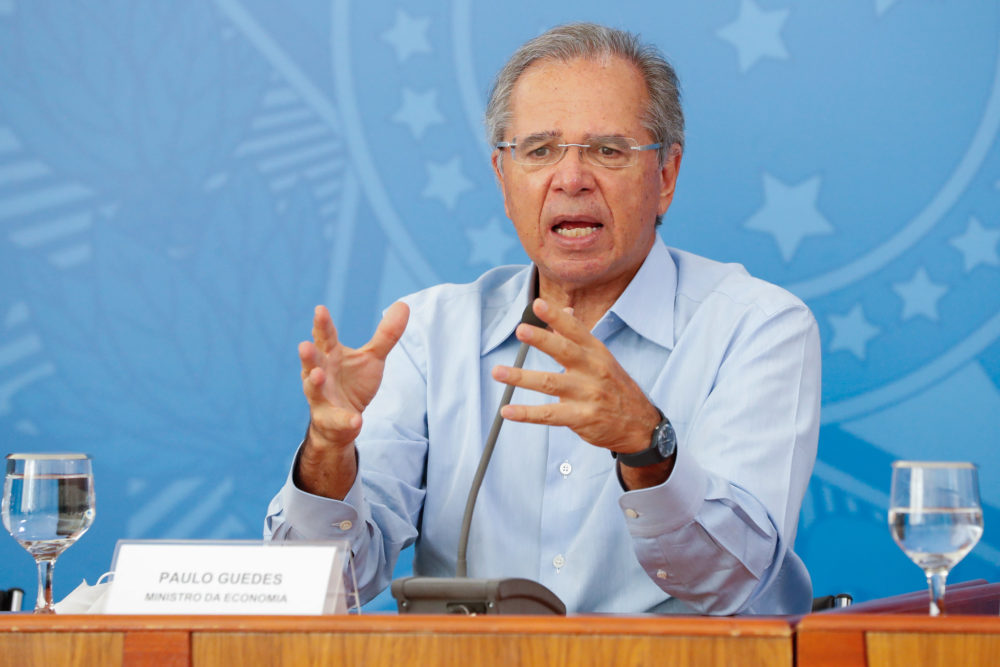RIO DE JANEIRO, BRAZIL – Political and ideological clashes are part of the daily life of any government. During President Fernando Henrique Cardoso’s second term, there were clashes within the economic team between developmental and monetarist groups. On the one hand, there were those who favored public spending as an economic incentive and, on the other, those in line with Milton Friedman (1912-2006), who advocated greater attention to fiscal issues.
Engineer Clóvis Carvalho, former head of the Ministry of Development, was among those defeated in the squabble. The case forced the president to take a side and dismiss Carvalho. In the current administration, there is a similar clash, but President Jair Bolsonaro, rather than taking a stand, makes ambiguous nods to both sides. Despite statements of support for the liberal ideology of Paulo Guedes‘ economic team, his actions do not match the rhetoric – a reflection of the early campaign for his reelection. The problem is that the two agendas are increasingly conflicting.

On Tuesday morning, September 15th, the President used the social media to degrade Waldery Rodrigues, Special Secretary of Treasury. Guedes‘ trusted man, the Secretary disclosed in an interview one of the ideas to make Renda Brasil (Brazil Income) viable, a program that would combine the emergency aid paid during the coronavirus pandemic to the Bolsa Família (Family Grant). To the President’s annoyance, it involved the freezing of pensions and the minimum wage, a harsh proposal that could undermine his popularity. “Anyone who comes to present a measure like this to me, I can only give them a red card,” said Bolsonaro. “Until 2022, my government is forbidden to use the word Renda Brasil. Let’s continue with the Bolsa Família and that’s the end of it”.
The pressure soon mounted on the Ministry of Economy. After an urgent meeting with the President and the subsequent video release, Guedes explained his dilemma in an online presentation: “Forty million unemployed and you’re going to keep raising the minimum wage? It is important to remember that it was not the first time that an attempt to find resources for Renda Brasil resulted in a Bolsonaro scolding. In August, the President canceled the program’s presentation on the eve of its announcement, after finding out that it would be financed with salary bonus funds.
At the time, he declared that he could not take from the “poor” to give to the “very poor” and ordered Guedes to rewrite the proposal. Then the Minister said that the funds would come out of his plan – to disindex, unbind and exonerate. But with the rejection of Waldery Rodrigues’ proposal, the new solution was shot down right at birth. Such actions hinder the effective management and development of social actions undertaken by the government. “The country has many programs to serve the poorest population, but there is no impact assessment,” analyzes Marcos Lisboa, economist and president of the INSPER business school. “They are poorly focused and do not reach the neediest groups.”
The decreed end of Renda Brasil, however, is seen by many members of the government only as a temporary freeze on the project, which should return under a new shape. This expectation is based on the program’s own relevance to attracting electoral dividends, since the emergency aid is scheduled to end in December. A study by Sergio Vale, chief economist of MB Associates, projects a drop in GDP of up to 2.4 percent in 2021 if the emergency aid has no replacement. Even if this loss is partly offset by the post-pandemic rebound, economic growth would remain low at 2.2 percent, leading unemployment to hit 17 percent of the population before receding.

To avoid this scenario, Bolsonaro should support an energized Bolsa Família. In the 2021 Budget, the government estimates that the program will reach 15.2 million beneficiaries, at a cost of R$34.9 billion. The average monthly amount currently received is R$190. But the President believes he can include more people in the program, to reach around 25 million Brazilians. Gradually, he would also increase the transfers. In his candidate yearnings, the goal is R$500 on the eve of the 2022 elections. It is a difficult account to close since it would take R$75 billion to offer half this amount to 25 million people.
The main battlefield will be in Congress, since the 2021 draft budget does not provide for a large increase in the number of Bolsa Família beneficiaries. With all its remaining strength, Guedes’ team advocates respect for the spending ceiling as a means to avoid a greater fiscal crisis that would scare away private investments. For each new resource spent, it would therefore be necessary to “lower the floor rather than pierce the ceiling,” as the Minister argues – and that is what his proposal is all about.
According to a survey by the Federal Senate’s Independent Fiscal Institution (IFI), the government will need to cut R$20.4 billion in discretionary expenses – those that are not compulsory – next year to respect the ceiling. This amount does not account for the discarded Renda Brasil or even the overthrow of the presidential veto on the extension of payroll deductions from several sectors, something that could increase the bill by R$10 billion.
A summary of the soap opera: the presidential bile unleashed against Special Secretary of the Treasury, Waldery Rodrigues, adds more instability to an already turbulent scenario. “The economic team lost some of its most important exponents and Guedes, today, has become an easy target for the President,” says political scientist Sérgio Praça. In an earlier incident, Marcos Cintra, then-Secretary of Revenue, was dismissed for advocating the transaction tax, along the lines of the widely despised former CPMF (tax on financial transactions), which is dear to Guedes.
“The president anticipated the electoral calendar and is now avoiding making painful decisions,” says Cintra. As was the case with Fernando Henrique in the past, Bolsonaro’s day to make a choice may be near. By assuming the Ministry of Economy, Guedes took on a mission he considers almost divine. His permanence in the government, however, involves the acceptance of his agenda. To people close to him, he has confided that in December he will analyze the burden and bonus of the challenge he assumed in 2018.
Source: Veja

